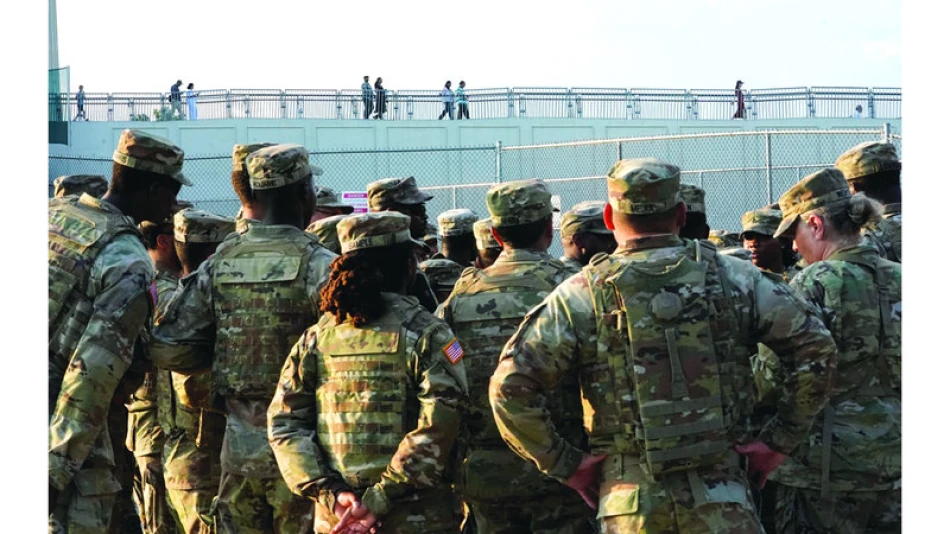
National Guard Deployment Readied in 3 U.S. States Ahead of Presidential Inauguration
Trump Deploys National Guard to Washington D.C. as Federal-Local Power Struggle Intensifies
Republican governors from three states are sending hundreds of National Guard troops to Washington D.C. at President Donald Trump's request, marking an escalation in federal intervention as the administration characterizes the nation's capital as crime-ridden. The deployment comes amid a tense standoff over local police control, with D.C. officials fighting to maintain autonomy over their law enforcement operations.
Multi-State Military Response Takes Shape
West Virginia Governor Patrick Morrisey announced the deployment of 300-400 National Guard soldiers to the capital, describing it as a demonstration of "commitment to public safety and local cooperation." The state will also provide specialized equipment and training support.
South Carolina Governor Henry McMaster responded to a Pentagon request by authorizing 200 National Guard troops, while Ohio Governor Mike DeWine committed 150 military police personnel for deployment in the coming days.
Federal Authority vs. Local Control
The troop deployments represent the latest development in a brewing constitutional clash over D.C.'s governance. Trump announced last week his intention to temporarily assume control of the city's police force, currently led by Democrats, citing what he termed a crime and homelessness emergency.
However, D.C. officials have mounted legal resistance. Washington Attorney General Brian Schwalb filed a lawsuit to prevent federal takeover of the capital's police force, while negotiations resulted in a compromise allowing Police Chief Pamela Smith—appointed by Mayor Muriel Bowser—to retain operational control of the department.
Historical Precedent and Constitutional Questions
The deployment echoes similar federal interventions during periods of civil unrest, but the current situation differs significantly in its peacetime context and focus on routine law enforcement rather than emergency response. The National Guard typically operates under state governors' authority, except when federalized for national service. D.C.'s National Guard uniquely reports directly to the president, giving the federal government unusual leverage in the capital.
Political Implications and Governance Challenges
This confrontation highlights the unique constitutional position of Washington D.C., which lacks full statehood and operates under federal oversight despite having local elected officials. The dispute reflects broader tensions between federal authority and local governance that could set precedents for future administrations.
The multi-state response also demonstrates the extent to which Republican governors are willing to support Trump's domestic agenda, potentially signaling coordination on other federal initiatives requiring state cooperation.
Operational and Legal Uncertainties Ahead
The deployment raises questions about command structure, rules of engagement, and the scope of National Guard authority in civilian law enforcement. While the compromise preserves local police leadership, the presence of federal troops could create operational complications and jurisdictional confusion.
The legal challenge by D.C.'s attorney general remains pending, potentially creating a scenario where federal troops operate in a city whose officials contest the federal government's authority to deploy them for routine policing purposes.
The situation will likely serve as a test case for the balance between federal emergency powers and local self-governance, with implications extending beyond D.C. to other jurisdictions that might face similar federal intervention demands.
Most Viewed News

 Sara Khaled
Sara Khaled






